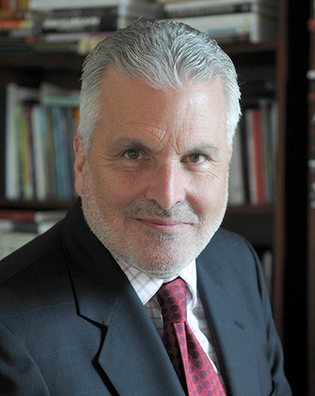 loading
loading
MilestonesJ. D. McClatchy, 1945–2018An editor and poet with “the power to answer outcry with insight.”  Michael MarslandJ. D. McClatchy ’74PhD, who died in April, edited the Yale Review for 26 years. View full imageI first encountered J. D. (“Sandy”) McClatchy ’74PhD in 1978, when I was an undergraduate at Yale and his student in a course on contemporary American poetry. That course roughly coincided with the publication of important books by poets Elizabeth Bishop, Robert Lowell, and James Merrill, and McClatchy’s teaching was infused with the excitement of having been present at the creation, because he knew all of these writers. McClatchy died of cancer on April 10 at the age of 72. His own poetry addressed the great subjects of love and death while never losing sight of the formal considerations of poetry. His 2016 volume Sweet Theft: A Poet’s Commonplace Book includes a dictum from Goethe: “In the limitations the master shows his mastery.” The greatest artists are those who never feel freer than when they are constrained by their art: for it is here they find their power. The very first poem in McClatchy’s first book, Scenes from Another Life (1981), speaks of “the power to answer outcry with insight,” and through a lifetime of joys and reversals delivered by the heart or by the body, this is what he did. In person and in his correspondence, McClatchy was an arch and witty conversationalist, an exacting teacher and critic, and formidably well-read, with a taste that ranged from Blade Runner to Hugo von Hofmannsthal. He prided himself on knowing the latest news, and the gossip too. He was, in short, a cosmopolite of almost Ovidian dimensions who also longed just to stay at home and cultivate his own garden. “Nothing gives me more pleasure, or relaxes me more,” he wrote, “than fussing, deadheading, pruning, rearranging, watering. . . . If only I had time to do the same at the desk!” Born in Bryn Mawr, Pennsylvania, McClatchy went to Georgetown then did his graduate work at Yale. He returned to New Haven for a distinguished career as a teacher and, from 1991 to 2017, the editor of the Yale Review. In addition to his own eight volumes of poetry, he wrote 16 opera libretti and edited more than 20 print volumes. He is survived by his husband, the graphic designer Chip Kidd. McClatchy was not just prolific: he was exemplary. He was an old-style man of letters who had “the energy to work as if there were no tomorrow,” as he said of his friend James Merrill. This he did with the modest explanation “One just puts his head down and soldiers on.” In McClatchy’s Sweet Theft is a quotation from the poet Alexander Pope, from 1721: “I see one may go so far as to be Poetical, and hope to save one’s Soul at the same time.” By the excellence of his work and the breadth of his interest, by his achievement, his energy, and his generosity, McClatchy clearly believed in the salvation that literature can provide.
The comment period has expired.
|
|